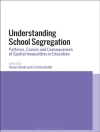Focusing on Irish speakers in Catholic West Belfast, this ethnography on Irish language and identity explores the complexities of changing, and contradictory, senses of Irishness and shifting practices of 'Irish culture’ in the domains of language, music, dance and sports. The author’s theoretical approach to ethnicity and ethnic revivals presents an expanded explanatory framework for the social (re)production of ethnicity, theorizing the mutual interrelations between representations and cultural practices regarding their combined capacity to engender ethnic revivals. Relevant not only to readers with an interest in the intricacies of the Northern Irish situation, this book also appeals to a broader readership in anthropology, sociology, cultural studies, history and political science concerned with the mechanisms behind ethnonational conflict and the politics of culture and identity in general.
Spis treści
Dedication
Epigraph
List of Tables, Figures, Maps
Acknowledgements
Glossary
PROLOGUE
Chapter 1. A Walk of Life: Entering Catholic West Belfast
Chapter 2. Framing the Research: Analytical Approach and Methodology
- The Analytical Framework for the Study of Ethnic Identity (and the Irish Language)
- On Methodology
PART I: THE IRISH LANGUAGE IN CATHOLIC WEST BELFAST
Chapter 3. Fáilte isteach – Welcome In
Chapter 4. Becoming a Gaeilgeoir
- Roibeárd, age 63
- Rónán, age 61
- Mairéad, age 58
- Micheál, age 55
- Dónal, age 49
- Fíona, age 47
- Pól, age 47
- Pádraigín, age 40
- Sinéad, age 33
- Caoimhín, age 17
- Preliminary observations
Chapter 5. On Prophets, Godfathers, Rebels and Prostitutes:a Contemporary History of the Irish language in Catholic West Belfast
- Emerging structural contexts for the Irish language in the 1950s: a prehistory
- Prophets on the moral ‘High Meadow’: the Cumann Ċluain Árd
- From a hedge(d) school to Irish language industries: godfathers of the Irish language
- Rebels with/out a political cause: the Jailtacht and beyond
- Prostitutes of the Irish language?
- Conclusions
Chapter 6. ‘Our own native language’: Local Representations and Practices of the Irish language
- Between purism and pragmatism: the micro-dynamics of Irish language usage
- The political hijacking of the Irish language revival: the meso-dynamics of supply and demand
- ‘Our own native language?’ The macro-dynamics of rights activism, ethnicism and nationalism
- Conclusions
PART II: IRISH IDENTITY IN CATHOLIC WEST BELFAST
Chapter 7. ‘It’s part of what we are’ – Identifying Identity
Chapter 8. Becoming (Aware of) Who You Are: Irish
- Roibeárd, age 63
- Rónán, age 61
- Mairéad, age 58
- Micheál, age 55
- Dónal, age 49
- Fíona, age 47
- Pól, age 47
- Pádraigín, age 40
- Sinéad, age 33
- Caoimhín, age 17
- Preliminary observations
Chapter 9. Casting Nets of Identity: a Contemporary History of Irishness in Catholic West Belfast
- ‘A constant counter-narrative to the dominant narrative of the society’: emerging structural contexts for/eclosing Irishness in Northern Ireland
- No games, just sports? Gaelic games and the playground of Catholic West Belfast
- ‘If you feel like singing, do sing an Irish song’: Irish music in Catholic West Belfast
- Knowing how to do your sevens: dancing to the tune of Irishness in Catholic West Belfast
- Conclusions
Chapter 10. ‘Something inside so strong’: Local Representations and Practices of Irishness
- What it takes to be Irish
- The Irishness of Protestants and the politics of a classificatory anomaly
- Autochthony as the causal logic behind ethnicity
- Conclusions
EPILOGUE
Chapter 11. ‘Trying to make sense of it all’: Identity Matters in Catholic West Belfast
POST SCRIPTUM
Bibliography
Index
O autorze
Olaf Zenker is Junior Professor at the Institute of Social and Cultural Anthropology, Freie Universität Berlin. He received his Ph D from the Martin Luther University and the Max Planck Institute for Social Anthropology, Halle/Saale, Germany, and obtained his habilitation from the University of Bern, Switzerland. His publications include the co-edited volume Beyond Writing Culture: Current Intersections of Epistemologies and Representational Practices (Berghahn Books, 2010).












